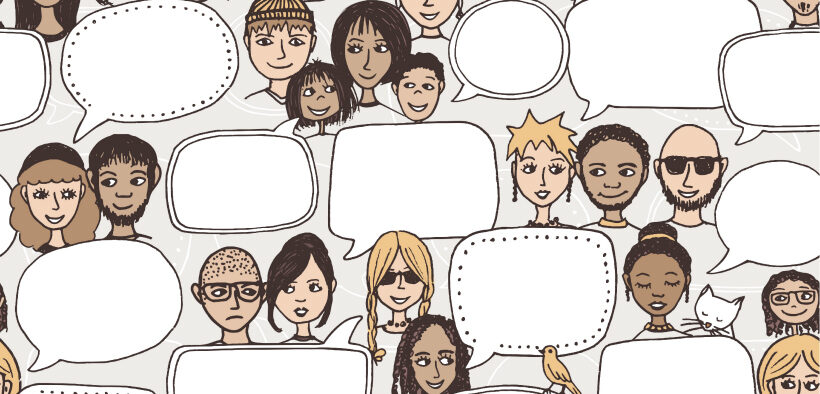We who work in higher education are constantly using and learning academic English, often without realizing it. We may not realize that the way we speak English is quite challenging to many students who don’t speak this way at home. College students who struggle to communicate fluently in academic English often experience lowered expectations from professors, stereotyping, and other forms of discrimination without their teachers being aware of their own biases (Lippi-Green, 2011). Research has shown that college professors tend to show positive bias toward students who sound like themselves and negative bias toward those who don’t (Godly et al., 2006). Students may absorb some of these negative messages and become reluctant to participate, which limits their ability to expand their language lexicons. In effect, our insensitivity to academic language can silence our students and limit their capacity to demonstrate their knowledge or skills. This may in turn limit a student’s view of themselves as a competent member of the community, with the same bright dreams and future ambitions as their peers.
Considering Language When Creating Inclusive Learning Environments

- Tags: inclusive classroom
Related Articles
I have two loves: teaching and learning. Although I love them for different reasons, I’ve been passionate about...
Recently, a student sent me a political news article with the comment “Things are falling apart.” I didn’t...
You’ve prepared a fabulous, interactive class. You’ve designed engaging activities, developed meaningful discussion questions, and cultivated an inviting...
AI has become a part of nearly all facets of teaching, from lesson development to exam creation to...
Navigating the gulf between the most and least prepared students in a course can seem like an insurmountable...
I’ve taught a course in statistics for psychological research for almost 40 years. No student becomes a psych...
My course is literally about teaching reading to young children, a challenge given that research suggests that college...









2 Responses
Great article. I teach at a school with many international students. In class I tell them they can speak aloud first in their native language, then translate for the rest of the us, as I understand the challenge of speaking in a second language when conversation moves quickly. When students do this they are so grateful, and we all have a deeper appreciation of learning in a second language.
Elizabeth, I love this strategy! Thanks for sharing it. What a wonderful way to honor the mother tongue and remind everyone of the value of bilingualism.